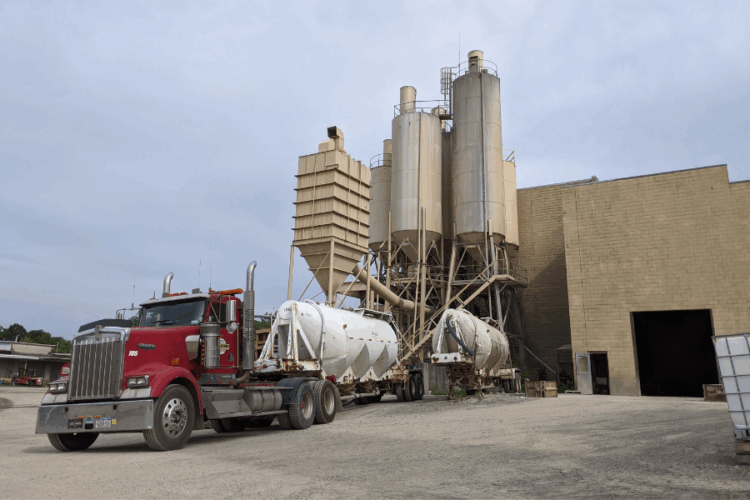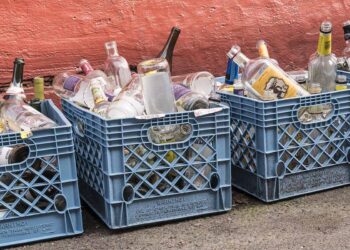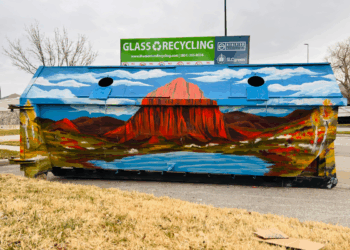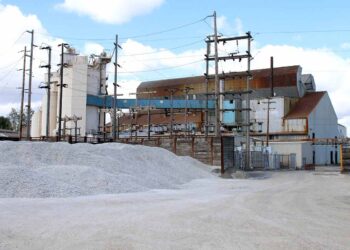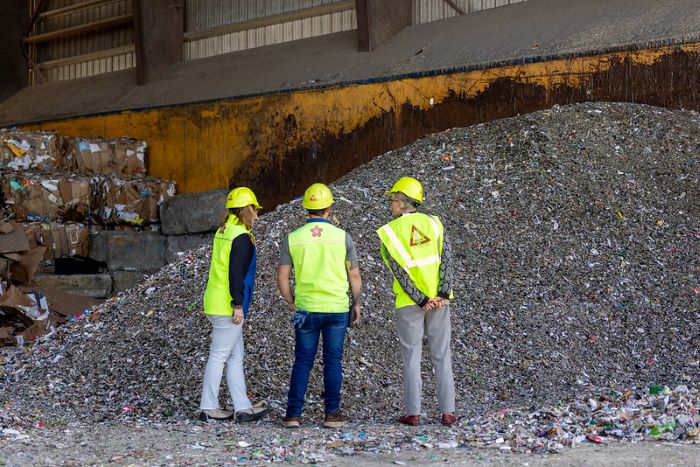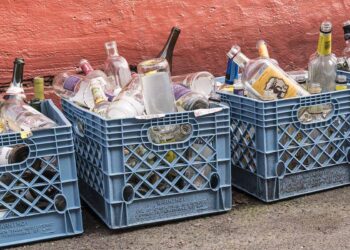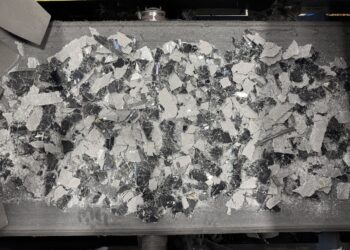A U.S. EPA grant provided the perfect foundation for KLAW Industries to build up its pozzolan business.
In November 2022, KLAW Industries received $400,000, one of several businesses to receive a Small Business Innovation Research (SBIR) grant. The New York state-based building material supplier used that money to develop its process for turning post-consumer glass into a partial replacement for cement used in concrete.
The emerging end market for consumer glass has greenhouse gas reduction benefits, studies have suggested, and is gaining traction across the country.
Jacob Kumpon, co-founder and chief operating officer of KLAW, said the grant allowed the company to fulfill a contract with its home city of Binghamton, N.Y. to provide material for a curb and sidewalk replacement project this spring.
Kumpon said the project went so well that the contractors involved in the city project decided to use KLAW’s material in their other projects, too. Smaller cities around Binghamton have also expressed interest.
“Our strengths really came out,” Kumpon said. “A big thing for us was everybody on the ground liked using the material more than what they were using before, so it really set us apart and got us into a lot of follow-up projects.”
Now, KLAW is working to build out capacity, because “there are more projects than we can make material for,” Kumpon said.
Leveraging partnerships
The EPA grant is helping grow the company’s operational capacity from 1 ton per day to 2 tons per hour, Kumpon said, and strong partnerships with local MRFs have meant feedstock is not a problem.
“The recyclers here in New York have been extremely supportive of us providing an alternative use for MRF glass,” Kumpon said, adding that “they’ve really been good about working with us, even at our small capacity, to make sure we have enough material and, as we start to grow, giving us more.”
Dave McPeek, compliance manager with Taylor Garbage and Southern Tier Recyclers, said the partnership with KLAW “has been a massive success for both of our organizations, allowing us to find a strong and impactful end market for our recycled materials.”
“As a family-owned company, supporting growing businesses bringing recycling innovations to our area is one of the ways we are making the world a better and greener place while serving our community,” McPeek added.
The future is focused on scaling up, Kumpon said, from local to statewide, then bringing the material to major cities in the Northeast and eventually nationwide.
He said Binghamton “taking the first step made people much more comfortable in the material, so that’s been one of the biggest things we’ve gotten out of the project,” he said.












